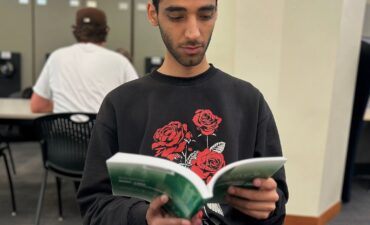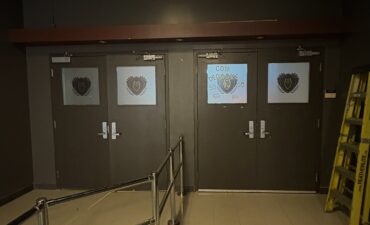
While some might find it tough to find their sense of community during a government-mandated lockdown, people of faith are finding ways to innovate and stay connected.
Strasbourg Alliance Church is one such community. Located in Strasbourg, a town 90 kilometres northwest of Regina with a population of 750, they started hosting drive-in services on Mar. 22, 2020.
“This drive-in church is one example where we’re just trying to … find creative ways to provide spiritual connection for people if we can’t even be as close physically,” said Strasbourg Alliance senior pastor Brian Tysdal.
https://www.facebook.com/StrasbourgAlliance/photos/pb.420515234718630.-2207520000../2223436667759802/?type=3&theater
To reduce the spread of the COVID-19 virus, Saskatchewan’s provincial government limited gathering sizes to just 10 people on March 25. The Canadian government is also pushing social distancing, which requires people to stay two metres apart and to stay home as much as possible.
“I phone up people in our church and I ask them how they’re doing, [or] is there anything that I can pray for, for you?” Tysdal said. “And then what I’ll do is I’ll drive to their house and I’ll just park out front of their home, and then I’ll let them know that I’m there. And then I’ll just … spend 15 or 20 minutes praying for them and for their household.”
“It’s an encouragement to them. I believe in the power of prayer, but it’s also an encouragement that they know that there’s someone there that’s got their back and walking with them through this time.”
Christians are not the only ones who have experienced a sudden change.
Mohammad Alam goes to Friday prayer at a few locations in Regina, such as Regina Islamic Centre & Mosque and Masjed Al-Noor. He said Regina’s Muslim community is adapting, but it hasn’t been easy.
“We are avoiding social gathering,” said Alam. “And now what we are doing, we are calling each other, [and] asking them how it’s going. Yeah, we are motivating each other to stay home. We are motivating each other to be closer to God. We are asking each other to pray more. Five times a day [is] mandatory, but we are asking each other to pray more than that.
“Now we are not going to mosque. We are staying home, which [makes it] really difficult to know each other.”

Both Alam and Tysdal said their communities were still finding ways to make sure others were taken care of. For Alam and his community, this means taking care of the elderly.
“In [the] Bangladeshi community, there are few old families,” he said. “Any food or anything, like any groceries, anything like that. They are calling us and we can call for them, do whatever they need, take whatever they need and [bring] all the stuff to their home.”
Tysdal said the Strasbourg churches used the opportunity to continue their food hamper program.
“The different churches in town will gather together and for Christmas time, for example, will provide food hampers for people who are in need,” said Tysdal. “We do that throughout the year actually. We’re doing it again now, this COVID-19 crisis [for] people who are in need that can’t meet their bills or can’t get food on the table as normally, maybe as early as they could. So we want to provide that kind of care.”
Chayce Eby, part of the River House of Prayer in Regina, said that while it isn’t able to meet in person anymore, its community has transitioned online quickly.
“Normally, we will get together in a small townhouse and we will have anywhere between 10 and 20 people there on a given prayer night or Sunday morning,” said Eby. “But now since the government has limited meetings … we have been forced to do meetings and prayer nights over … Skype or Zoom or something like that. So as far as our getting together goes, we’re still doing everything as we would normally, we’re just not getting together in one building.
“There’s something special about being able to meet with people face to face and being in one room, having a certain like, atmosphere or feeling to the room. But other than that … it’s just learning to take things differently.”
Many faith-based and religious centres in and around Regina have begun moving their services online.
Eventually things will return to normal, and people will gather at churches, mosques, synagogues, and each others’ houses once again. Tysdal said while drive-in church wouldn’t become the new norm, he sees some opportunities he hasn’t seen before.
“Honestly, it’s been kind of fun … I’ve liked it,” said Tysdal. “I like changing things up and doing something new. And there’s the people who attend are really excited to attend because it’s just it just feels fresh. And so even in challenging times, there’s opportunities to do fresh, exciting things that bring a sense of excitement and hope.”















